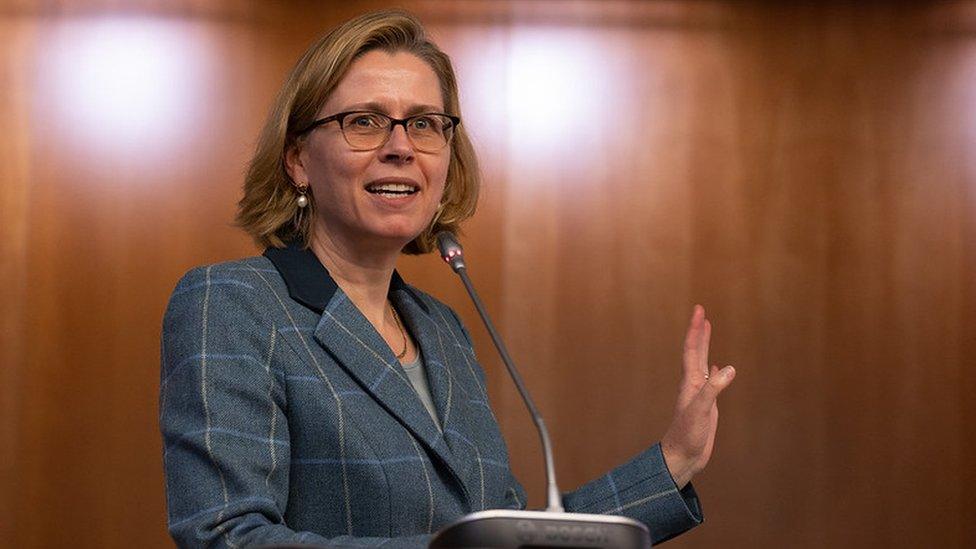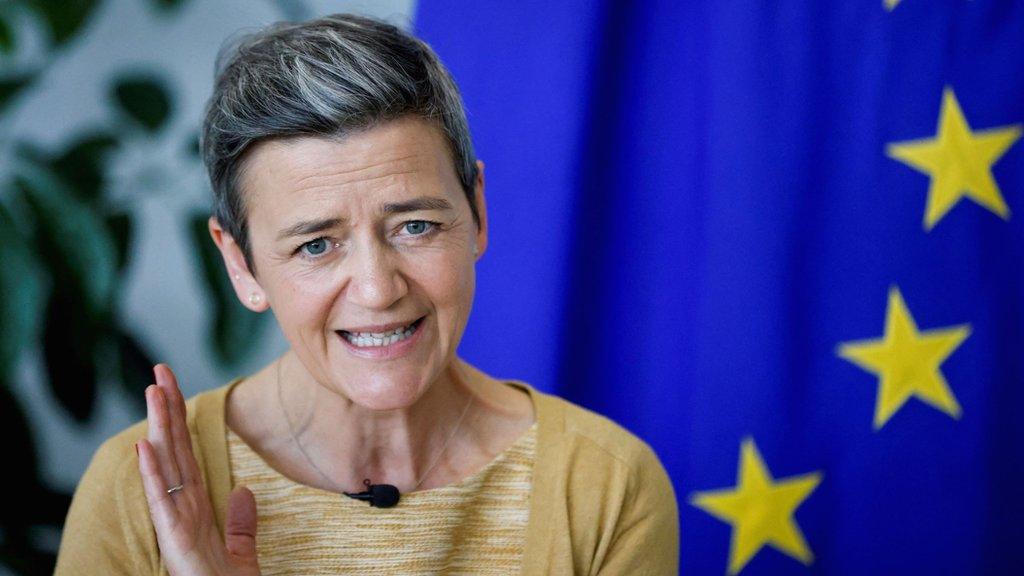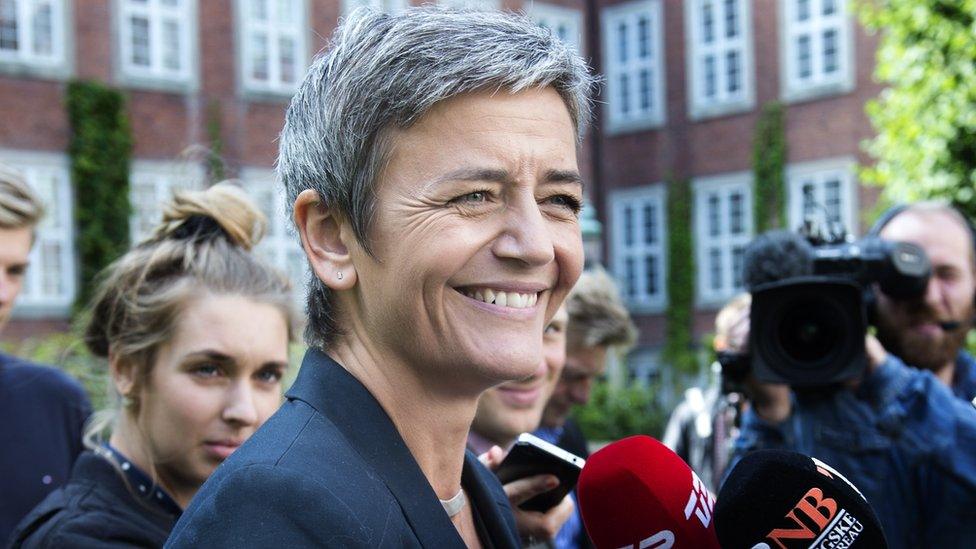European outcry forces US economist to drop top job
- Published

Yale economist Fiona Scott Morton is highly regarded but her appointment was criticised by big political groupings in Brussels
A highly qualified American economist, Fiona Scott Morton, has pulled out of a top European Commission post after her appointment prompted widespread European criticism.
She said that "given the political controversy", the best course of action was not to take up the job of Chief Competition Economist.
The loudest objections to her appointment came from France.
President Emmanuel Macron waded into the issue saying he was "dubious".
"Are there no great European researchers who have the academic skills for this job? If that's our conclusion then it's extremely worrying," he told reporters on Tuesday.
If someone of that calibre was not available he said Europe's academic systems had a very big problem, pointing out that US and Chinese rules would have barred a European from getting the same kind of job.
Ms Scott Morton, a Yale University economics professor, is undoubtedly highly qualified, having worked for the US justice department's antitrust department during the Obama presidency.
But she has also worked as a consultant for big tech firms such as Apple, Microsoft and Amazon - exactly the kind of big tech digital giants her job would have required to challenge in her role as chief competition economist in Brussels.
EU antitrust chief Margrethe Vestager, who has earned a reputation for taking on some of the biggest US tech firms, had robustly defended the appointment before MEPs in Brussels on Tuesday and described her corporate experience as an asset.
But in a statement on Wednesday she accepted Ms Scott Morton's decision not to take up the post , external"with regret and full respect for her integrity".
If anything, experience in private companies should be an asset, not an inconvenience

Fiona Scott Morton said her decision had been made not only because of the political storm surrounding her appointment but also the importance of the European Union's competition directorate having the full backing of the EU.
That prospect had become increasingly slim in recent days, not just because of President Macron's intervention.
There was also opposition from several of Ms Vestager's Commission colleagues.
And the four biggest political blocs in the European Parliament all called on Ms Vestager to reverse the appointment, external, saying they had "learnt with dismay" that a non-EU candidate could hold such a prominent position "at a time of intense scrutiny of our institutions vis-a-vis foreign interference".
However, Philippe Lamberts, co-president of the Greens, said that after talking to Ms Scott Morton his concerns had been addressed, external.
Some commentators, such as European think tank Bruegel, said criticism of the appointment was unjustified as the role involved overseeing economic evidence in competition enforcement and protected the process not the competitors.
French Nobel Prize-winning economist Jean Tirole said "the European Commission and more broadly us Europeans" were very lucky to have attracted someone of her calibre.
Mr Vestager told MEPs on Tuesday that the suggestion that someone's nationality might lead to bias was "questionable", and that Prof Scott Morton would need to recuse herself from only handful of cases.
Related topics
- Published25 March 2022

- Published14 June 2023

- Published2 May 2022

- Published18 July 2018
